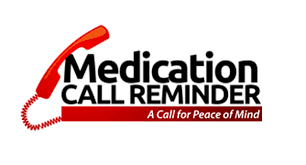How Medical Offices Can Improve Outcomes
Improvement in every aspect of life requires the use of macro and mini strategies. The same applies to medical offices. A transparent overview of these strategies inter-twin to enhance efficiency within the medical office and for patients.
- DATA COLLECTION AND ITS ANALYSIS
The advent of information systems has enabled seamless access to relevant data within an organization. Successful medical offices have robust data analysis strategies for the patient population and the medical offices. Many EHR (Electronic Health Record) systems focus on documentation, billing, and revenue enhancement. Hence, there is a need for additional platforms for collecting data within the medical office. These platforms include patient satisfaction surveys and outside studies, and feasible market trends.
2. HAVE SET GOALS AND EVALUATE REGULARLY
The outcome of the data analysis within the organization and patient population will guide the creation of set goals. Some reputable organizations that help create evidence-based and quality-centric goals include the Quality Payment Program, the Agency for Healthcare Research and Quality, and the National Quality Forum. After that, there is a need for ongoing evaluation. The regular assessment of goal realization is a fundamental principle of quality improvement.
3. ENHANCED ACCESS TO HEALTHCARE
The success of any project is determined by the experience of the users and beneficiaries of the project. Hence, patients’ access to healthcare is essential in the action plan to improve health outcomes. Many patients don’t visit medical offices and other health institutions because they don’t have adequate health insurance. These persons experience a chronic illness that could cost a large sum of healthcare dollars in the long run. In addition to health insurance, there is a need for harmonious coordination of information across multiple health providers and health organizations so that patients can access the best possible healthcare.
4. ENHANCEMENT IN PATIENT ENGAGEMENT
Patients can contribute to better healthcare by being proactive and informed about their health conditions and concerns. Hence, physicians who engage with patients for the first time about their health should strive to be great hubs for patients by understanding patients’ health concerns and family challenges. Such understanding will help in resolving communication challenges within the patients’ families and between other healthcare providers.
5. COLLABORATION WITH OTHER ORGANIZATIONS
Any healthcare organization’s growth is partly dependent on the quality of implementation of evidence-based strategies that improve health outcomes. Such improvement will include research into existing literature and other high-achieving organizations. There is also a need for healthcare leaders to reach out to industry high achievers to learn about high-performance strategies and feasible practices. Check out this link to discover some curated strategies that can improve outcomes in a medical office.









